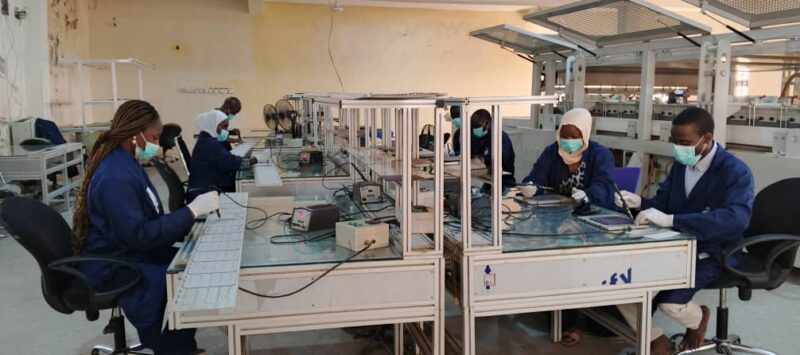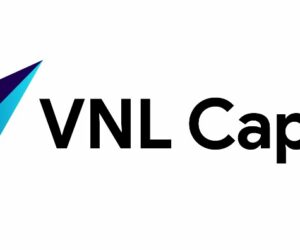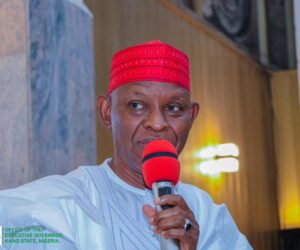Nigeria’s Micro, Small and Medium-sized Enterprises (MSMEs) currently carry the burden of electricity supply thereby hindering their growth and productivity generally. Faced with erratic grid power and soaring fuel costs, many business owners have turned to alternative energy sources.
Among the local solutions making significant impact is the NASENI Solar Energy Limited (NSEL), the country’s foremost indigenous solar panel manufacturer. NSEL, a subsidiary of the National Agency for Science and Engineering Infrastructure (NASENI) is a key and prominent institution dedicated to enabling Nigeria’s technological advancement and industrial competitiveness.
As a first-stop government institution for technology development in Nigeria, NASENI’s primary target is to empower MSMEs through impartation of technologies, engineering principles and practices for the production of equipment that will meet international standards as well as sustenance of a flourishing local capital goods or industry.
SPONSOR AD
Through NSEL, the Agency has developed solar technologies that are not only reliable but tailored to the energy demands of MSMEs. From salons and barbing shops to cold rooms, cyber cafés and fashion outlets, business owners are now embracing clean, locally produced solar solutions to keep operations running and costs down.
At the heart of this push is one of the company’s flagship products, the 1.5kVA Plug-and-Play Solar Home System. This innovation is receiving large patronage amongst small businesses for its simplicity, mobility and durability. The unit, which resembles a modern cabinet, powers lighting, fans, Television, and essential appliances without noise or fumes.
In addition to product delivery, NSEL also offers energy audits and system customization services to match specific business needs. Its field engineers conduct on-site evaluations, helping MSMEs determine the optimal solar requirements for their operations. This personalized approach has made NSEL a trusted name amongst entrepreneurs seeking sustainable power solutions.
With Nigeria’s over 39 million MSMEs contributing nearly half of the gross domestic product (GDP), experts say that accessible and affordable power are critical for national development. NSEL’s solar technologies, developed and assembled in Nigeria, are bridging that gap, supporting the country’s industrialisation efforts while reducing carbon emissions.
NASENI in 2010 established NASENI Solar Energy Limited (NSEL), a wholly owned company, in an effort to localise renewable energy production and tackle Nigeria’s persistent electricity challenges. Situated in Karshi, a suburb of the Federal Capital Territory, the company set out with a bold mission to harness the sun and transform Nigeria’s energy sector through indigenous innovation.
NSEL started with a 7.5 megawatt (MW) capacity solar panel manufacturing plant, which has now expanded to a 50MW facility, with plans to double capacity to 100MW in 2026. Over the years, NSEL has grown into a key player in Nigeria’s renewable energy ecosystem, producing solar panel modules, plug-and-play systems, and training a new generation of solar engineers, exemplifying NASENI’s vision of an industrialized, self-sufficient Nigeria, powered by local technology.
Walking through the Karshi facility, one sees more than just an industrial complex. Rows of solar photovoltaic (PV) modules, ranging from 80 watts to as much as 690 watts meticulously crafted by trained Nigerian engineers. These monocrystalline panels have earned the SON-MANCAP certification and, in many field tests, have outperformed their rated capacities.
Beyond large-scale modules, NSEL has developed a range of plug-and-play solar solutions targeted at Nigeria’s off-grid communities and struggling small businesses. One outstanding product is the 1.5kVA Solar Plug-n-Play Home System. Designed to look like ordinary furniture, the unit powers essentials like fans, lighting, TVs, and even small fridges, an innovation that marries aesthetics with functionality.
Then there’s the Solar Event Generator, a portable power box with foldable panels, ideal for outdoor events or street vendors. Also appropriate for rural dwellers and internally displaced persons (IDP) camps, the Solar Control System (300W) offers a compact, off-grid power solution capable of lighting homes and charging devices.
At the core of NSEL’s expansion strategy is a commitment to local content. The Agency has commenced the construction of NASENI Renewable Industrial Park, a multi-million dollar facility that will handle a range of things including lithium processing and manufacturing of lithium battery, amongst others in Nasarawa State.
The first of its kind in West Africa, NASENI Renewable Industrial Park will handle the full production chain, from silica processing to wafer, cell, and panel manufacturing. Once completed, this integrated facility will increase Nigeria’s solar self-sufficiency and reduce reliance on imported components.
According to the Agency, the NASENI Renewable Industrial Park will not only create over 20,000 jobs but will also help Nigeria meet its climate goals under the Paris Agreement. The broader aim is to localise up to 85 per cent of solar module components, leveraging Nigeria’s vast silica reserves.
To ensure sustainable growth, NSEL has prioritized capacity building. In partnership with Bingham University and other institutions, the company runs regular training sessions for solar technicians, engineers, and entrepreneurs.
Also, NSEL introduced the Hybrid Solar Power Trainer, a mobile training kit designed to give hands-on experience in solar power system installation and maintenance. Like many indigenous ventures, NSEL faces its share of challenges. Chief among them are limited funding, high costs of raw materials, and logistics hurdles.
However, the Agency is not deterred. Strategic partnerships with private sector firms, such as AcreLog Engineering, are helping NSEL overcome these barriers by co-financing new installations and expanding distribution networks.
In an era of rising fuel prices and unreliable grid electricity, the demand for solar power solutions is growing. And for many micro, small and medium enterprises (MSMEs) NSEL’s locally-made products offer a more affordable and durable alternative to imported systems.
The broader impact of NSEL’s work extends far beyond Karshi. By localizing the renewable energy value chain, the company is helping Nigeria reduce its import bill, create jobs, and improve energy security. Experts say that if every state in Nigeria adopts a similar solar production model, the country could generate over 2,000MW of clean energy within the next decade.
Indeed, Vice President Kashim Shettima, during a recent launch of NASENI’s National Asset Restoration Programme in Maiduguri, Borno State, lauded the Agency for pioneering a self-sustaining approach to renewable energy, describing it as a “game-changer for national development.”
NSEL may not yet be a household name, but its impact is already being felt across Nigeria’s energy landscape. From powering homes in remote villages to equipping MSMEs, the company represents a bold new chapter in Nigeria’s quest for energy independence.
With NASENI contributing to the transformation of Nigeria’s economy through job creation, income generation and boosting the country’s foreign exchange reserves, it is working to accelerate economic growth, through technology transfer and adaptation to critical sectors.
The Agency is assiduously bent on reducing import bill by 25 per cent, leveraging a mix of Nigeria’s innate capabilities, partnerships and its dynamism to $34.7 billion by 2030. This will help in lifting 2.5 million people out of poverty and generate over 3 million jobs by 2030 through creating an enabling environment that fosters business operations.








